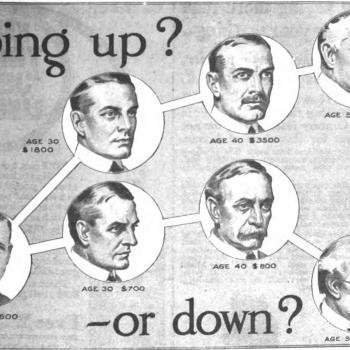Here’s a trivia question for you. Has a statutory provision ever been successfully challenged on constitutional grounds after it was repealed?
Answer: yes.
It just happened in the Northern District of Texas, in the case Texas v. United States of America. [1] Congress, you will recall, has repealed the tax imposed under the Affordable Care Act (ACA) for not purchasing health insurance. This is the provision that was upheld by the Supreme Court in National Federation of Independent Business v. Sebellius, Secretary of Health and Human Services [2] in 2012. What this effectively means is that no individual is any longer required to purchase health insurance, as has been the case under the ACA. So what’s the complaint?
 That’s actually a pretty good question, and the fact that it is a pretty good question is what is critical here. This is because you can’t just come to court with generalized grievances; you have to have suffered a particular injury—the outcome of the case has to affect you. But because Congress has now reduced the penalty for not buying health insurance to zero, no one is adversely affected by a penalty for not buying health insurance. No harm, no foul. Courts are there to redress injuries, not to engage in political philosophy.
That’s actually a pretty good question, and the fact that it is a pretty good question is what is critical here. This is because you can’t just come to court with generalized grievances; you have to have suffered a particular injury—the outcome of the case has to affect you. But because Congress has now reduced the penalty for not buying health insurance to zero, no one is adversely affected by a penalty for not buying health insurance. No harm, no foul. Courts are there to redress injuries, not to engage in political philosophy.
The District Court opined that Congress intended the mandate to buy insurance as a critical component of the ACA, that it would not have passed the ACA without it. What this ignores is that a subsequent Congress repealed the penalty without repealing the rest of the ACA. Perhaps Congress simply didn’t have the votes to repeal the entire ACA, so it only repealed the part that it could under congressional rules. But that doesn’t mean the entire Act falls. The Congress that repealed the penalty portion of the Act, left the rest of the Act in place, and it must be inferred that Congress intended to do what it did. Even if the Congress that passed the ACA in the first place intended the health insurance mandate to be such an intrinsic part of the ACA that the entire Act would fail of its intent without it, that intent cannot be imputed to the Congress that repealed the penalty. It must have intended the rest of the Act to remain without the penalty, and we know this because that is exactly what it did.
Congressional intent is an important part of statutory construction. But it has never before been heard that the desire of members of Congress, who didn’t have the votes to get a repeal of an entire statutory scheme, should have that desire fulfilled by the courts. True, the District Court’s ruling was on constitutional grounds. But the constitutional grounds on which the District Court relied was on the part that was repealed!
“’It is preferable that each power be balanced by other powers and by other spheres of responsibility which keep it within proper bounds. This is the principle of the “rule of law,” in which the law is sovereign and not the arbitrary will of men.’” (Catechism of the Catholic Church, no. 1904) [3] Unfortunately, that didn’t happen in the Texas case.
The icon of St. Joseph the Worker is by Daniel Nichols.
Please go like Christian Democracy on Facebook here. Join the discussion on Catholic social teaching here.












